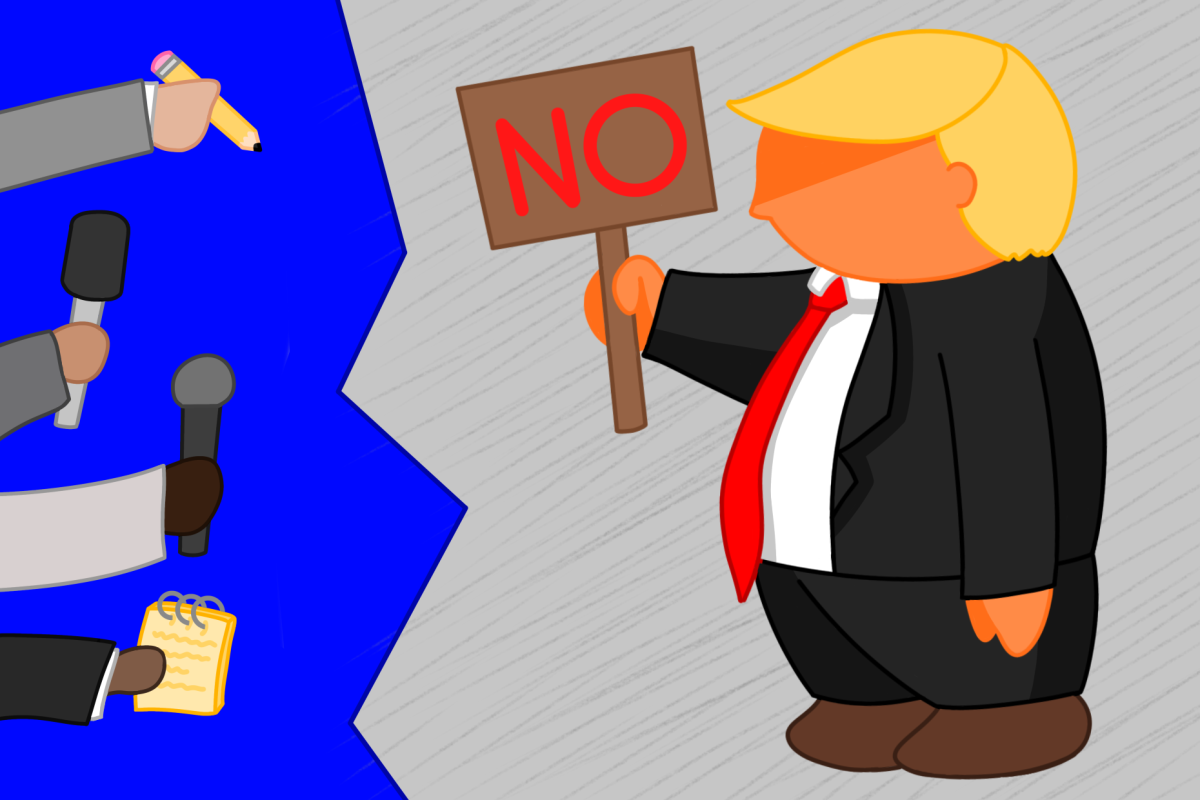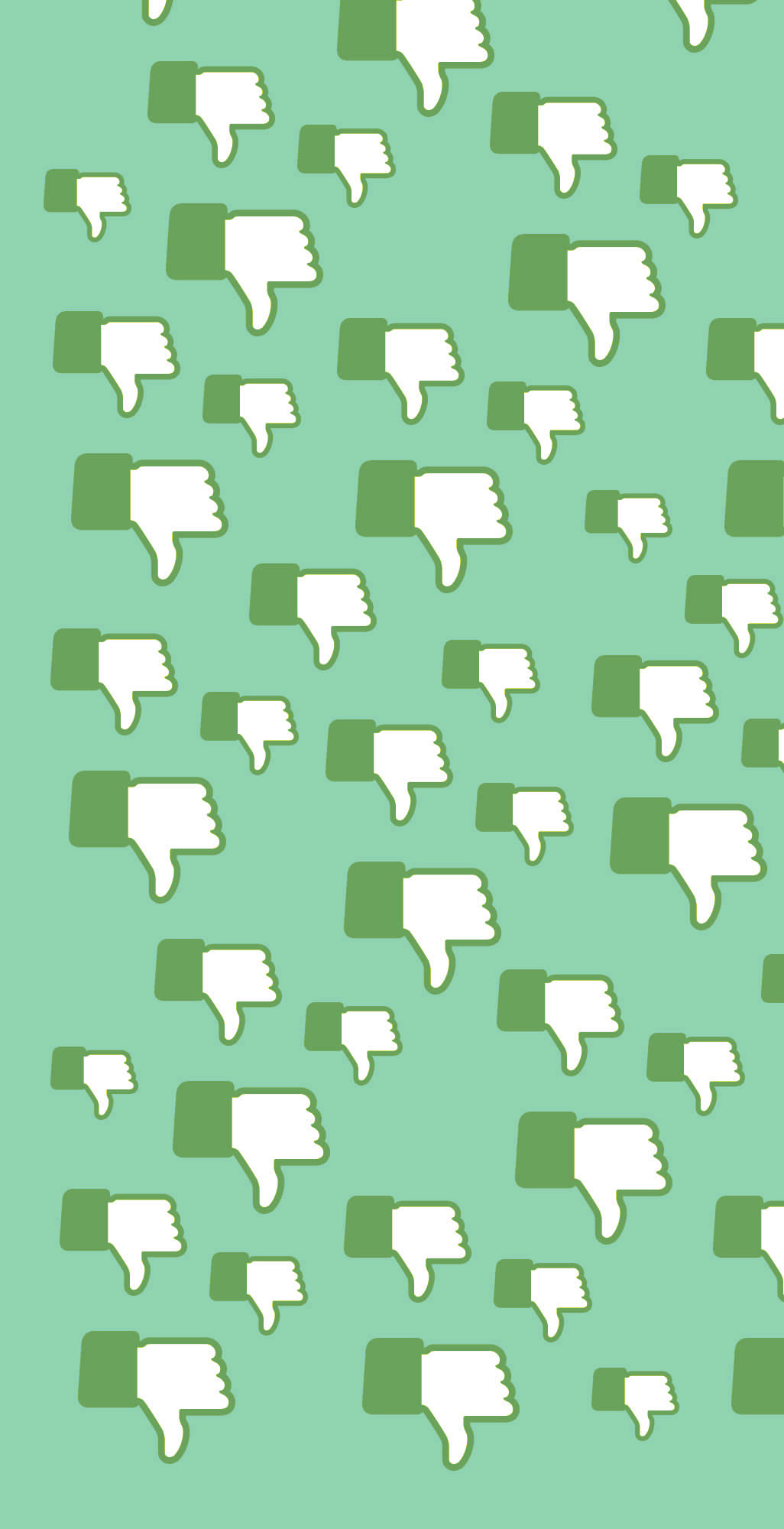Editor’s Note: This story appeared in the December 2015 ORANGE Issue IV.
This very complicated issue has moral, financial and practical implications that must be taken into account.
Story By Caden Kinard and Corey Tatel
Illustrations By Jesus Acosta
Caden Kinard: The Pros
The NCAA is a modern day catch-22. The creation of the National Collegiate Athletic Association in 1906 declared that athletics are an extracurricular avocation in which “student-athletes should be protected from exploitation by professional and commercial enterprises.”
Enterprising in non-exploitation has led to a monopolistic exploitation by the NCAA and the universities it governs. Through media contracts, endorsements, sponsorships and any other form of revenue, the NCAA and its institutions are the only ones who can pro t from college athletes’ performances and their images. The nal tournament for basketball, March Madness, brings in about $550 million on TV rights alone, and the contract for ESPN to broadcast the College Football Playoff has an estimated value of $500 million per year. Contracts of athletic directors and coaches usually are littered with performance-based clauses, creating a division between academic and athletic goals. Ohio State athletic director Gene Smith receives an extra $75,000 if the Buckeyes make it to the Final Four or a BCS Bowl game. Athletic directors’ and coaches’ careers are dependent on winning.
Athletes are an integral part to revenue at universities, and athletics have become a new form of institutional exploitation. The capitalistic culture in college athletics has made student- athletes become student or athlete. Counselors and professors encourage athletes to make academics a lower priority because of the athletic rigor required to meet the economic demands for athletic budgets. Athletes are being used. The NCAA requires athletes to have insurance before playing in their sport, which the athletic programs should be paying for, but not all of them are. This leaves many players with bills due after leaving the program without nancial aid. With the lack of individual proper academic advice and low graduation rate, athletes are ending their college athletic careers without direction.
The Knight Commission on Intercollegiate Athletics was created “to ensure that intercollegiate athletics programs operate within the educational mission of their colleges and universities.” They’ve admitted the system is awed. The “amateur” status was created when millions of dollars didn’t exist in the NCAA. The mantra has changed. The Knight Commission proposed athletic scholarships should be for ve years instead of four. Athletic eligibility should depend on degree progress, and graduation rates should be criteria for certi cation by the NCAA — simply, “no pass, no play.” Financially, the commission proposed reducing athletic costs.
But everybody knows too much money is invested in college athletics to change. If academic standards are not changed, then athletes should be willing to make money from their image and abilities, especially when most do not play professionally. Universities act like a scholarship is a fair trade of resources, but when institutions don’t prioritize academics, what are the athletes actually getting? It’s a one-sided affair. Athletes devote 40-hour weeks to sports and attend school full-time while schools make millions off their abilities. Isn’t it time for the actual players to make some of the money they generate?
Corey Tatel: The Cons
I used to be so firmly against paying college athletes that I wouldn’t even listen to the other side of the argument. After watching several documentaries and reading many articles, I’ve come to acknowledge the legitimacy of the idea due to the corrupt nature of the National Collegiate Athletic Association, which makes large pro ts from college athletics but doesn’t share any portion with student athletes. But at the end of the day, I believe the cons of paying college athletes simply outweigh the pros.
This very complicated issue has moral, financial and practical implications that must be taken into account. The debate centers around questions of whether paying college athletes along with their already free tuition is fair to other students, the financial implications of who will provide the funds and whether paying student athletes would make them professionals with the ability to negotiate and unionize.
For the sake of this argument, college football players will be addressed because they bring in a large majority of the funds that schools make off of college athletes. The biggest problem that college football faces is an overall attitude of entitlement among players. College football players have been told they were great from a very young age. They’ve been elevated on a pedestal above the rest of their peers. Coaches have been recruiting them and other students have been looking up to them since grade school. When a young player is treated like he is above those around him from a young age, it eventually in inflicts attitude that the player is superior to the rest of the population.
This overall attitude of entitlement among college football players stretches to all aspects of life, both on the eld and off. On the eld, it affects the players’ work ethic. College players are told they’re the most talented players in the world and that their skills are superior from the day they start playing the game. Players rely on their athleticism in high school football and because they are so much more talented than other high school players, it is reinforced. But what happens when they get to the collegiate level and everyone is just as talented as they are? It’s di cult to develop a work ethic over night. These players have relied on their superior athletic ability their entire lives, and their resulting attitude of entitlement can often get in the way of their athletic success at the next level.
We’ve seen player entitlement become a problem at our own university as much as any campus in the country. “[University of Texas] kids have always been entitled,” an anonymous college football coach said in response to media criticism of Charlie Strong. “They’ve given everything. They’re usually four or ve star recruits that don’t feel like they have to work. They thought they could just show up.”
Paying athletes would only compound this problem. If coaches already have problems getting athletes to work hard due to their sense of entitlement, money is only going to make matters worse. One of the reasons players are still motivated to go out and work hard is to get to the professional level so that they can make money. If the incentive is removed by paying athletes in college, who knows how many other schools are going to face the problems Texas has?
Sadly, the culture of entitlement affects players’ academic performance. It’s reasonable that college athletes miss more class than the average student given their intense travel schedules. However, it is not reasonable that so many college athletes skip class even when they are not traveling or competing. Throw more money athletes’ pockets, and the superior attitude will only increase the apathy toward academics, which could reduce class attendance even further.
We live in an age where athletes are getting into more legal trouble than ever before. It now seems like a weekly occurrence that ESPN is covering a story on the legal trouble of a college athlete. On Oct. 31, Ohio State quarterback J.T. Barrett was arrested for driving under the in uence, and a video released by TMZ revealing his conversation with a police o cer is proof of how far the culture of entitlement has stretched. “I’m the quarterback at Ohio State… O cer, there’s nothing you can do?” Barrett asked the officer who was giving him the citation.
Barrett truly believed that being the quarterback at Ohio State put him above the law and his actions would not be held accountable because of who he was. Many players feel that they are above the rules because of who they are and make poor choices as a result. If these players were to be given money, there would only be more poor decisions to follow.








































